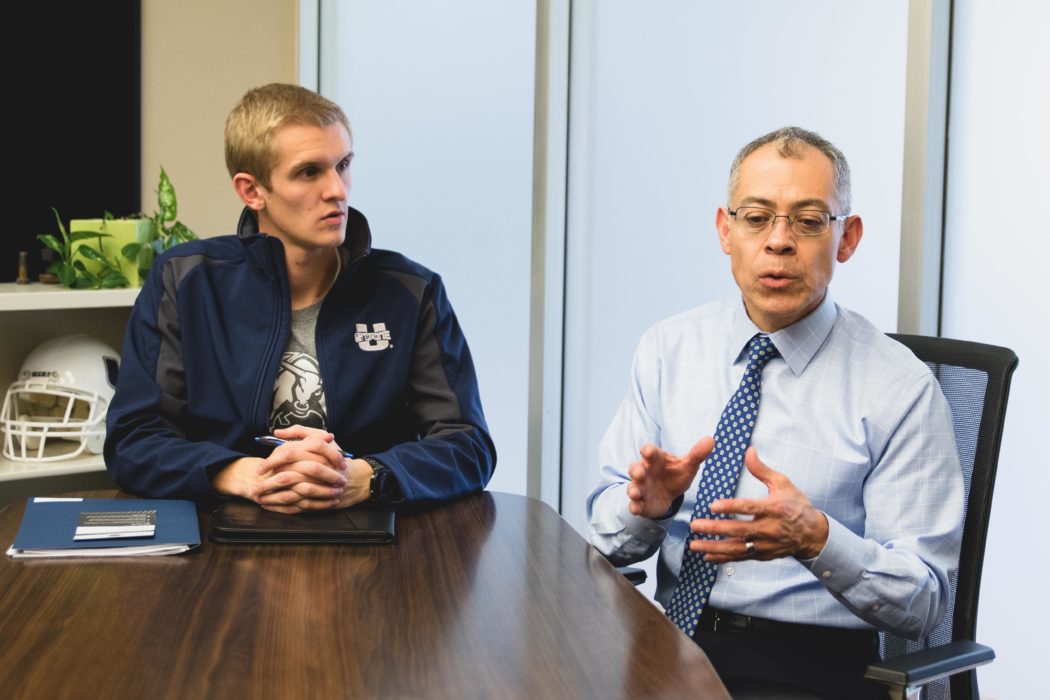USU and statewide student leaders continue mental health improvement efforts
A year after state legislators declared a mental health crisis at Utah’s colleges and universities, student leaders and administrators are continuing to pursue efforts to improve mental health efforts.
The Utah Student Association, comprised of the student association presidents from across the state, created a video called “This Does Not Define Us,” which encourages students to reach out to family, friends and roommates when they feel alone.
The video reminds viewers that they are never alone — that there is always someone who can help them.
“Friends, parents and best mates are here for you, ready to listen, wanting to help,” the video said. “However, it is up to you to let them in.”
Utah State University Student Association President Michael Scott Peters said the initiative is a compliment to professional help, not a replacement.
“There’s professional help that we can get, but we also should look to our friends and family,” Peters said. “Sometimes we feel like we’re the only ones going through something.”
James Morales, vice president for student affairs at USU, said improving mental health requires a multi-pronged approach.
“It takes everybody looking at it from their vantage point,” Morales said.
The USUSA’s 2016-17 mental health goals included the declaration of a statewide mental health crisis, getting funds for additional therapists at Counseling and Psychology Services, and ending the stigma behind mental illness.
Rachael Fresh, who served as the USUSA Student Alumni vice president under President Ashley Waddoups, said the executive council came together before the 2016-17 school year in an effort to improve mental health at USU. They also expanded their efforts to the community and to the other Utah universities. Fresh was in charge of working with high schools where she helped launch mental health awareness weeks and teach suicide prevention to student leaders.
“It was amazing to see them light up,” Fresh said. “To watch them walk out and feel empowered to make a difference.”
Morales also emphasized the importance of educating the community on mental health, because students may have struggled with mental illness before attending USU, and many will struggle in the future.
“Everybody has to mobilize,” he said. “Everybody has to be involved in addressing these issues for the entire life of individuals, not just a four year period.”
“This all ties back into the student body theme: Everyone belongs,” Peters said.
spencerburt@aggiemail.usu.edu
@SpencerABert


—ending the stigma behind mental illness??
Your error is common –and strongly supported. Fathoming why is difficult.
You educate people who direct that prejudice, you do not allow them to educate you to direct it.
See rape/stigma and how well supported it once was. It is not an error to repeat.
Harold A. Maio, retired mental health editor